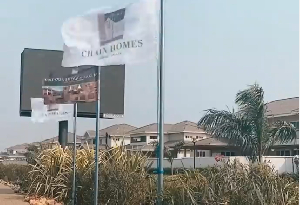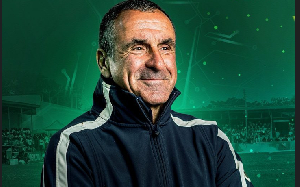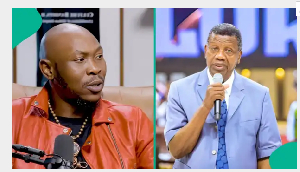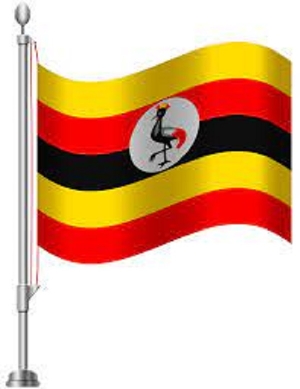Many years ago, Ghana’s education system was regarded as the best in West-Africa. Kwame Nkrumah as president,had augmented the educational structures put in place by the British by building more schools such as the G.I.J, U.C.C, KNUST, and many more. The educational system of those days has produced prominent intellectuals such as J.E.A Mills, Kofi Annan, Frimpong Boateng, Bamford Addo, Georgina Woods, Emile Short, Ransford Tetteh, and many more. In fact, most of the ministers, doctors, engineers, lawyers, journalists, and bankers we have today, are beneficiaries of that educational system. They, in those days, were not only taught by brilliant, motivated, and dedicated teachers, they also had access to basic equipment and facilities that aided learning. These are individuals who can stand up to the occasion at any given time. Kofi Annan for instance, has gone on to become the United Nations Secretary General. Emile Short also, has just returned home after serving as judge with the United Nations International Criminal Tribunal for Rwanda in Arusha, Tanzania. Professor Frimpong Boateng until recently had been Ghana’s only heart surgeon. The list of Ghanaian achievers is endless.
It is no longer news, however, that Ghana has had a phenomenal fall from grace with regards our standard of education. Students that are being produced today are mediocre, unlike their fathers and mothers in those days who were highly intelligent and ingenuous.
We now have schools and institutions that lack basic imperatives for quality education such as competent and motivated teachers, infrastructure, equipment and facilities such as classrooms, textbooks, and computers.
Worst affected are public primary and Junior High Schools, which we refer to as basic schools. Like I indicated earlier, many of the prominent people in our society such as our ministers, are beneficiaries of the flawless educational system of yesteryears. They attended public primary and J.H.S schools popularly known as ‘syto’ where they were given the best of education; and today, they are hugely successful. It saddens my heart however, to state that the future looks bleak for my brothers and sisters who attend public basic schools in Ghana today. It has to be said that most of those children are poor academically. Most of them find it very difficult to articulate their beliefs in English.Only a few of them defy the difficult conditions to eventually become successful. Majority of them don’t make it past J.H.S.
These children fail not because they aren’t intelligent, but because they are being taught by unmotivated and in some cases lazy teachers who don’t give their all. These are teachers who neither pay attention to weak students nor encourage them; they take it for granted that those kids are so dull that nothing can be done to help them improve academically.
Because of the appalling conditions in our public schools, many parents who can afford to do so take their children to private schools. That know that is the only way they can secure the future of their children. There wouldn’t be any need for this article if all parents could afford to take their children to private schools. The reality, as we all know, is that some Ghanaians cannot afford three ‘bad’ meals a day not to talk of taking their children to private schools where they would be obliged to pay exorbitant sums of money in school fees. Our politicians and other prominent people in society know that the situation in public schools is appalling, so they either take their children to private schools where they would be guaranteed quality education or take them abroad for equally quality education. Needless to say, they want the best for their children. We all know that all parents want the best for their children. If those whose children attend public schools had a choice, they wouldn’t have taken their children there in the first place; they would also have taken their children to private schools where they can have good education; however, poverty has denied them that chance.
Two things have been established here: 1. all those who attend public or government owned primary and J.H.S schools are children of poor people who don’t have the means of taking their children to better schools. 2.our politicians as well as other prominent people in society know that government owned primary and J.H.S schools are bad so they take their children to private schools.
The fundamental question therefore is if those in government know that education in our public schools is bad, why haven’t they done any thing about it? It may interest you to know that in spite of all the money government derives from taxes, exportation of natural resources, royalties, as well as aid from foreign donors, some children still do not have access to common classrooms; they read and write under trees, where they are susceptible to rain and sunshine. In other places, about seventy to eighty children are jammed into one classroom. How will they understand their teachers? This is in my opinion is pathetic, sad, and absolutely unfortunate. And this is where I want to call on his Excellency President J.E.A Mills to as a matter of priority and urgency, initiate measures to make education in our public basic schools as good as what we have in the private schools. Public basic schools should also be able to boast of competent and motivated teachers; the onus therefore, lies on the government to not only increase the salary of teachers substantially, but also to provide them with incentives that will motivate them to give their all; teachers' reward shouldn’t be in heaven; their reward should be here on earth. Teachers who are found to be lazy and uncommitted however, should be sacked and replaced with diligent, dedicated, and punctilious teachers who would give the children the best of tuition.
Also, public basic schools should also be able to boast of good infrastructure, so that children can study in congenial environment. Situations whereby seventy to eighty children are jammed into one classroom should be a thing of the past. The government, without doubt, deserves commendation for making efforts to provide free school uniforms for deprived children. However, of what use will such a benevolent gesture be if majority of these children fail and eventually drop out of school as a result of the bad teaching they get? Of what use will free school uniforms be if those children end up doing all sorts of menial jobs such as Kayayei, and scrap metal collecting, at best; or end up becoming armed robbers, sakawa boys, prostitutes, and occultists at worst? Giving out school uniforms without providing quality education, is synonymous to pouring water in an empty basket; at the end of the day, the desired result will not be realized.
The President should therefore make the provision of quality education in basic public schools a priority. Like I indicated earlier, there wouldn’t be the need for this if all parents could afford to take their children to private schools; but we all know that the poor in society cannot afford to do this; that however, doesn’t mean their children don’t deserve quality education? If the government could get millions of dollars for Ghana@50 and millions of dollars as loan for our highly esteemed parliamentarians, it should also be able to provide quality education for our beloved children. This is imperative if the government’s aim of eradicating poverty in the near future is to be realized.
Having promised to be ‘father to all’, it’s my hope that President Mills, would personally see to it that the government, through the Ministry of Education, initiates measures to address this situation. It has to be said again and again that children who attend public basic education in Ghana today, deserve education as good as what their colleagues in private schools get; this is important if they are to become doctors, engineers, bankers, journalists, ministers, and many more.
So Mr, President, over to you!
God bless our homeland Ghana! Samuel K. Obour samuelkwason@yahoo.com The Author is studying Communication Studies at the Ghana Institute of Journalism.
Opinions of Wednesday, 2 September 2009
Columnist: Obour, Samuel K.














